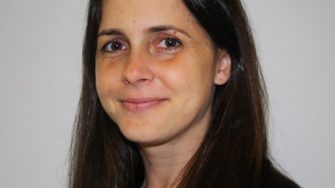
Like many in her field, Dr Lise Lafferty balances the rigours of research with various other professional and personal pursuits. In addition to being an accomplished qualitative researcher, she is a mum-of-two, avid runner, and executive member of an International Network’s Special Interest Group, along with sitting on several committees. As part of this insightful conversation, Lise reflects on the moments and mentors that have shaped her research in infectious diseases, her experiences navigating unrealistic expectations around academic productivity, and entering “a more exploratory phase of figuring out the research gig.“
Can you tell us a bit about yourself?
I’m an early career academic working across ADA and the Faculty of Medicine & Health. My research uses qualitative methodologies to understand infectious disease transmission, testing and treatment uptake, and healthcare delivery in priority settings and populations across Australia. I have a particularly keen interest in reducing hepatitis C transmission among people who inject drugs in the prison setting. I am on several school, state and national committees, along with being an executive member of the International Network on Health and Hepatitis in Substance Users’ Early and Mid-Career Researchers’ Special Interest Group. I am also involved in studies implementing novel strategies to increase STI testing uptake.
What sparked your interest in this area of research?
My interest in this area of research is the result of a series of snowball events and people. Importantly, I have felt incredibly supported by a lot of people to work in this niche area while keeping true to my former life as a frontline worker in social services. Looking back, undertaking research in the prison setting seemed to be the natural evolution. I wouldn’t be where I am now without the amazing support of Scientia Professor Carla Treloar, who mentored me throughout my PhD and beyond (and still does!), and Professor Rebecca Guy, who has mentored me in conducting research relating to sexually transmissible infections. I feel very privileged to have such phenomenal mentors!
What are you working on right now?
I’m working on a number of studies focused on reducing hepatitis C transmission among people who inject drugs in prison and increasing hepatitis C testing and treatment uptake both in the prison setting and in the community.
I feel like I’ve entered into a more exploratory phase of figuring out the research gig, and it’s been a lot of fun learning about the impacts we can have when we think outside the box.
What do you find most rewarding about being a researcher?
Honestly, being a qualitative researcher is the most rewarding part. I get to have in-depth conversations with people about their health concerns and strategies for prevention and learn how they engage in and with healthcare. I then get to analyse this unique data and do my best to make sense of it all. I’ve also learned in the past couple of years that we aren’t restricted to the ‘collect data–analyse–publish–next study’ cycle and that we can be creative in how and to who we present findings. I feel like I’ve entered into a more exploratory phase of figuring out the research gig, and it’s been a lot of fun learning about the impacts we can have when we think outside the box. As a researcher, I’ve also been able to collaborate with and learn from incredible people around the world.
What piece of advice would you give to other early career researchers?
So many priorities and commitments to juggle at work and at home! In addition to being a full-time academic, I am also a mum to a 3 and 5-year-old, with the older one starting kindy this year. I’m also an avid runner training for my next marathon, which means sneaking in runs whenever I can. It’s a lot to juggle! After I finished my PhD, and when I was pregnant with my first child, I said yes to every opportunity that came my way. I wished I’d known that it was OK to slow down and not attempt to hurl myself up the career ladder. That seems to be the perception in academia – that we need to be everywhere all at once. Well, that just isn’t possible. And I learned that the hard way. I spread myself thin at a time when I was supposed to be building my confidence. The result was a few bumps and bruises to my ego, which only reinforced my imposter syndrome. My advice is to be kind to yourself, set manageable expectations, and know that it is OK to say no to things. Your confidence (and sanity!) will thank you for it.
To learn more about Dr Lise Lafferty’s research, projects and achievements, visit her Researcher Profile.
